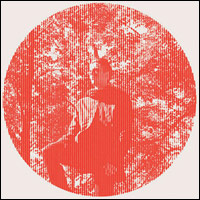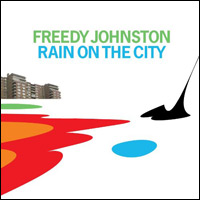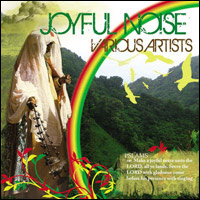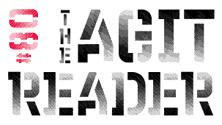
Contra
XL
For all the talk about how Vampire Weekend’s hugely successful debut ushered Paul Simon’s Graceland-era African tributes into the 21st century, the record itself sounded surprisingly, well, western. With the exception of the classic “Cape Cod Kwassa Kwassa,” the songs on that album, while well executed, were largely representative of the prim and proper “post-Shins” indie rock that’s dominated college radio and car commercials for the past five years. But just as Simon followed up his smash hit Graceland with the looser, stranger, and ultimately, more rewarding Rhythm of the Saints, Vampire Weekend’s sophomore album, Contra, is more sonically and rhythmically adventurous than anything they’ve done before. The record embraces the instrumentation of Afrobeat to a larger degree while delving head-first into synth-pop, balladry, and other musical forms new to the band. Anything but a victory lap, Contra sounds like the expansive, globally minded album the buzz machine led us to expect two years ago.
The first thing that jumps out about the record is how the band utilizes non-traditional percussion to augment songs in unique ways, instead of simply throwing diverse drums into the mix as token nods to other cultures or genres. Opener “Horchata” employs the beatific marimba melodies of Brazilian percussionist Mauro Refosco, which contrast nicely with the song’s aggressive, driving tympani beat. “White Sky” uses basic cymbals and snare hits, but only for texture, and is instead propelled by a beat built almost entirely on synthesized sounds, inverting the way most modern rock bands use technology. Here and elsewhere on the album, Vampire Weekend combines a more subdued version of the electro-pop fetishized by Vampire keyboardist Rostam Batmanglij’s Discovery side-project with both South and Latin American, as well as African, influences.
Of course, not everything has changed for the band. Singer Ezra Koenig is up to his old tricks within the first 10 seconds of the album, rhyming “horchata” and “balaclava” in an example where the singer’s habitual eruditeness creates an unnecessary barrier between him and the listener. But overall, the band sounds much less bound by affluence and complacency over the course of Contra than they did on their debut, evoking the frantic bustle of Third World city life on “Cousins” (aptly recorded in Mexico City) and overfilling each bar of “California English” with as many words and sounds as possible so as to make us forget for a second that Koenig’s singing about something as abstruse as the verbal politics of private school.
Koenig’s lyrics contain the most power when he strips away his upper-class veneer to reveal an emotional core beneath the 10¢ words and polysyllabic rhyme patterns. On the album’s best song, “I Think UR a Contra,” he laments his failure to commit by singing, “Never pick sides, never choose between two, but I just wanted you, I just wanted you,” with a palpable sense of regret and loss over the end of a relationship which, if the song’s epically somber, Jon Brion–esque strings are any indication, was nothing short of incredible. It’s moments like this that prove Vampire Weekend is much more than a one-off success story, and that Contra is much more than another sophomore slump destined for the dollar bin.
David Holmes
MP3: “Horchata”

Fixin to Thrill
Bandroom
Let’s get the obvious out of the way first. Yes, Dragonette’s Martina Sorbara looks, sings, and dresses a lot like Karen O, and yes, the band’s second effort, Fixin to Thrill, takes a curiously substantial number of cues from those wily Yeah Yeah Yeahs. These two bands have a fairly indisputable correlation, one that consistently pokes through the album’s 42-minute trajectory. Both broke onto the scene making rock-driven dance music, both are fronted by quirkily-attractive females who aren’t afraid to sing about sex, and both have done that “Losing My Edge” thing, selling their guitars for turntables, sequencers and synthesizers. But divorced from that distracting, quasi-belittling parallel, Dragonette makes some fairly effervescent pop music.
These songs are club crushers, all 12 of them meticulously, maybe a little obsessively, sculpted to annihilate dancefloors. You’ve got your warm-and-fuzzy slow jam in “Easy,” your dumb, semi-rhyming catchphrase in “Okay Dolore,” and of course, the cups-in-the-air bass-burner, “Liar,” centered gleefully and unironically around the meaningless, but still pretty charming hook of “Don’t speak, don’t breath, don’t touch the fire. It’s gonna burn us alive!”
Similarly, the album’s tracks are themed around the traditional touchstones of club culture: love, sex and dancing, and the tribulations that come with such things. Sorbara goes from being a disco-minx stalking her next prey to an exasperated lover unable to escape the web of seduction she’s found herself stuck in at a near autobiographical level. The lyrics are a sort of playful ode to that particular brand of fling-induced heartache, but the record never fully delves into despondency, nor does it break its lightning-juice pace. This is dance music after all.
Fixin to Thrill’s title track is the best song Dragonette has written thus far. Pumped full of lymphatic synth and rollicking bass, with Sorbara making half-references to her less-than-wholesome desires, it’s the kind of song that’ll have you dancing while washing dishes or mopping floors. And that’s what Fixin to Thrill is: a ton of loud, goofy, unabashed fun. Remember fun? If you can’t, Fixin to Thrill is a pretty good reminder.
Luke Winkie

Heartland
Domino
Sorry to disappoint you, but the artist formerly known as Final Fantasy (he’s regressed to his real name Owen Pallett) doesn’t show a lot of progress on his conceptual Domino debut, despite employing Nico Muhly, Arcade Fire drummer Jeremy Gara and the Czech Symphony. If you liked He Poos Clouds, you’ll probably like this one. Heartland’s highpoints are at least as high as those on HPC, but the low points are also lower, and the midpoints at least as middling.
So, in the spirit of Owen’s childlike gaze, let’s focus on the high points. “Lewis Takes Action” capitalizes on the simplistic, innocent bounce of Owen’s laptop chamber music by subverting it completely. This charming, lilting tune, with its flutes like sprites and straightforward oom-pah underneath, is all about violence. “I broke his jaw,” Pallett sings in a soaring voice full of love. “He’ll never speak again.”
This is followed shortly by “The Great Elsewhere,” the album’s four-star gem. A fuguing organ figure gets layered with crunchy static, blooping strings and other digital detritus before the hi-hat and bass drum come in and the song levels-up (sorry, I had to work a videogame reference in there somewhere) and takes off. This kind of sound-stacking and soaring melodies are the best examples of what Pallett shoots for and sometimes accomplishes on the record. The song codas gently with a trilling piano and a ritarding decrescendo of cello chords.
Really, Pallett sticks to this formula for most of the album, to mostly pleasing effect. It’s only when his own pomposity and shallow emotionalism overtake his melodic ideas that the songs occasionally fall on his face.
Matt Slaybaugh

Rain on the City
Bar/None
Eight years have passed since Freedy Johnston’s last album of original material, and his timing couldn’t be more perfect. Amid winter’s tragic bleakness, his familiar voice and sartorial song piecing casts a barrelful of ease. Like a grizzlier and slightly more caustic Matthew Sweet, Freedy is what he sings. To know his music is to know him—and that’s how it has always been.
With 11 cuts funneling through ungussied folk, thoughtful rock and a touch of bossa nova, Rain on the City upholds Freedy’s recurring motifs of loss and loneliness. His key changes are still swift and his arrangements are still poignantly simple. The small-town Kansas native, who’s pushing 50, just doesn’t need to bother with complexity. He’s that good. Plus his knack for ingraining melodies with wicked and mellow haunting has been unwaveringly retained, as evidenced in “Lonely Penny,” “The Devil Raises His Own” and the album’s title track.
Recorded in Nashville with producer Richard McLaurin (Justin Townes Earle, Allison Moorer, Slaid Cleaves), Rain on the City reminds you that it’s entirely possible (and sometimes necessary) to find consolation in desolation, especially when provided by the best singer-songwriter who almost made it. With all of this coddling, I just might make it to March.
Alexandra Kelley

Joyful Noise
I Grade
Joyful Noise is a 16-artist “deep-roots” reggae compilation from I Grade Records, based out of St. Croix in the U.S. Virgin Islands. As “roots” is the more straightlaced, lyrically focused version of reggae (at least in comparison to the much more psychedelic “dub” permutation, which is usually marked by heavy reverb and studio wizardry ala Lee “Scratch” Perry), Joyful Noise as a whole does not stray at all from textbook skank reggae. All of these songs would fit perfectly in the playlist on your local NPR affiliate’s world beat hour—you know the one, because that’s when you sigh and tune into the classic rock station for some familiar Rush or AC/DC rather than some bland, unknown pap.
The concept of this compilation centers on showcasing vocal talent—a fact I failed to notice after the first few listens. Though the comp is 20 tracks and runs an hour and change, there are only four songs—five versions of each with different singers. The same drum intros, the same horn lines, the same walking bass, the same keyboards... it quickly became tiring. The musicianship is professional and tight; the drum sounds are crisp and clear; the bass is commanding; and the off-beat skank is prominent. The problem lies with the production and the lyrics. Jah praise is old hat (but so are love songs)—just don’t make it sound like it belongs on Contemporary Christian Radio. Suffering is interesting, but it’s so hard to believe over these sunny, crystal clear “riddims.” In the interest of constructive criticism, these producer dudes at I Grade really need to pay attention to Daptone. There is one essential sound interesting in reggae: the snare drum. If your live drummer sounds like a $20 keyboard’s reggae demo rhythm (not riddim), you might want to keep it in the books for a while until you’ve figured out how to make it sound like 1968. Sell the Pro-Tools package and get a sheet of metal and a two-track tape machine.
Michael P. O’Shaughnessy
ALBUM REVIEWS
The Dry Spells, Too Soon for Flowers
Animal Collective, Fall Be Kind EP
Trans Am, What Day Is It Tonight?
Goldspot, And the Elephant Is Dancing
The Gaslamp Killer, All Killer
Brimstone Howl, Big Deal. What's He Done Lately?
Dragon Turtle, Almanac
Deer Tick, More Fuel for the Fire EP
Kitsuné Maison's Compilation 8
Julianna Barwick, Florine EP
Easter Monkeys, Splendor of Sorrow
Wizzard Sleeve, Make the World Go Away
We All Have Hooks for Hands, The Shape of Energy
The Mercury Program, Chez Viking
